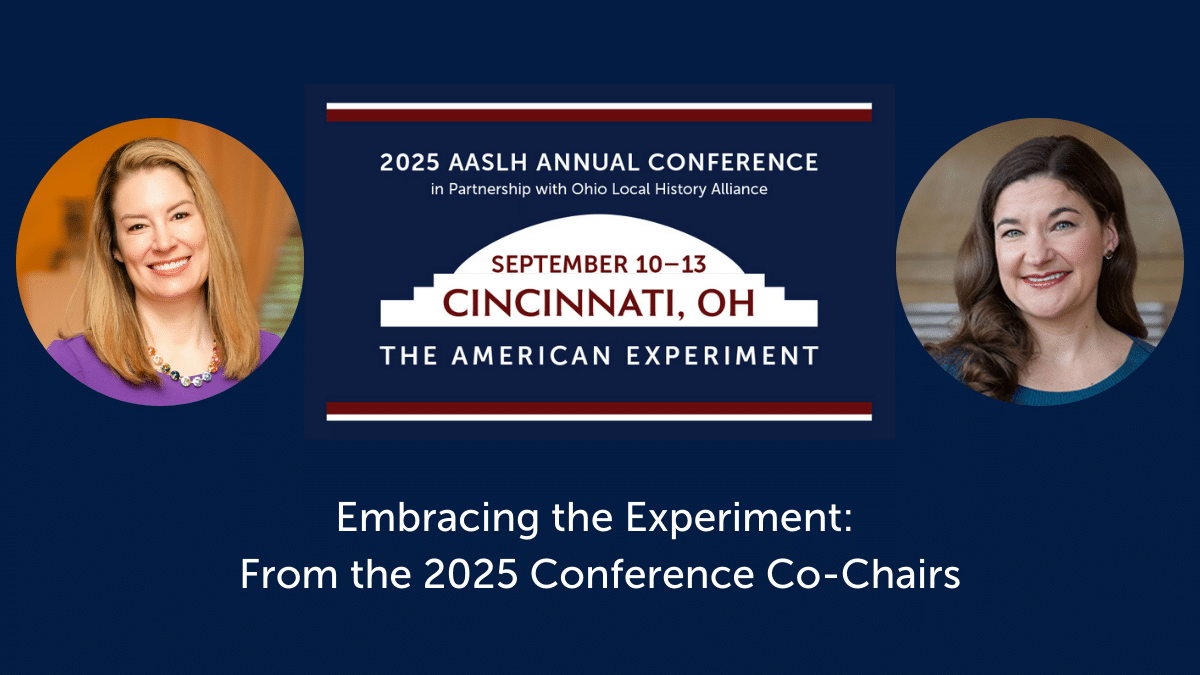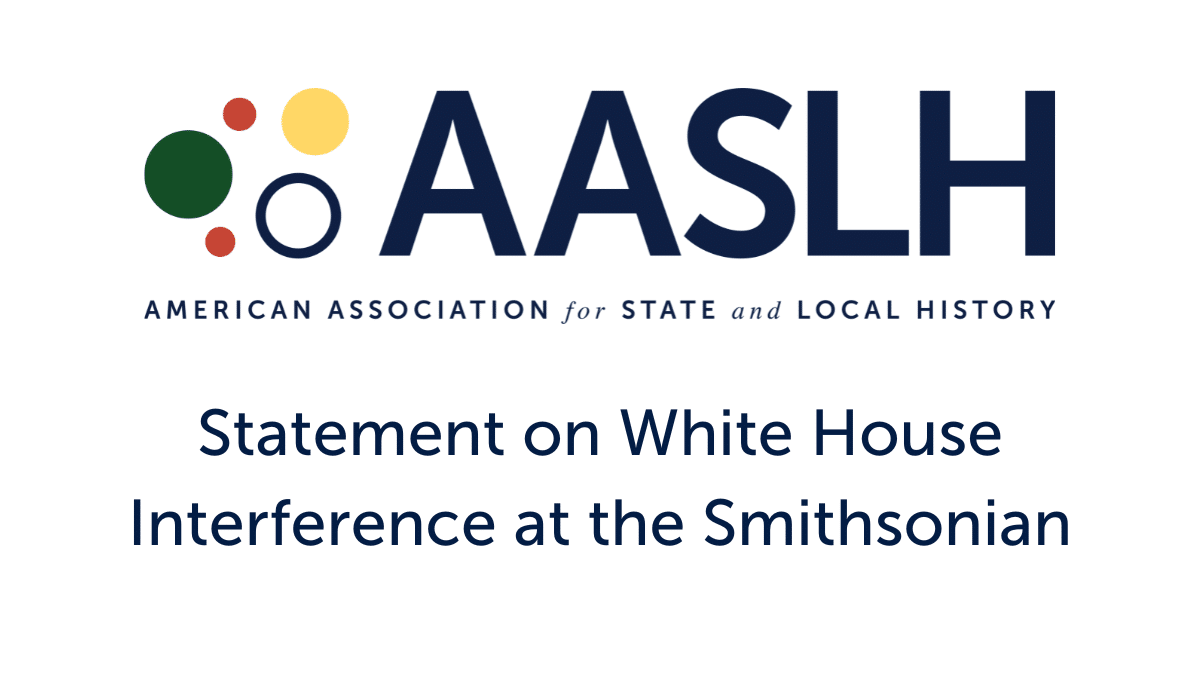
Two weeks ago, AASLH announced the opening of a national survey of visitation at history organizations. It marked the beginning of a renewed effort by AASLH to better serve our members and the field by gathering, analyzing, and distributing information about national trends affecting the history community. We hope that, by researching nationwide trends and challenges at history organizations, we will equip institutions and individual professionals across the historical enterprise with the information they need to thrive.
Questions about visitation trends come up frequently, but at present, there just aren’t many current, evidence-based answers available. The simple reason why is that no one is regularly collecting national data about visitation to history organizations.
Although more comprehensive answers aren’t available, a few recent studies have pointed to the need to better understand the problem. In 2016, a report from the American Academy of Arts and Science’s Humanities Indicators project found that visitation to historic sites “fell by more than a third from 1982 to 2012.” Their findings were gleaned from the National Endowment for the Arts’ “Survey of Public Participation in the Arts.” The survey defined historic site visits in very broad terms, including things like touring a “building or neighborhood for its historic or design value,” but it did not include other types of history organizations like museums and historical societies. At the time, AASLH President & CEO John Dichtl lamented this lack of data, stating “Only the National Parks Service provides a national picture of visitation rates by gathering data from its own historic sites.”
Since that time, visitation trends have continued to represent a pressing issue for the field. A 2017 survey by the National Trust for Historic Preservation of small history institutions, like historic sites and historic house museums, found that visitation had actually increased over the previous five years for 62 percent of their respondents. Likewise, a 2018 article by history and museum consultant Bob Beatty points out that recent visitation data from large institutions reveals a messy picture rather than a consistent trend, and that the available resources about visitation rarely account for factors like institutional budget size, which limits the possible analysis.
The National Trust Survey notes that visitation is one of the primary ways small history organizations measure success, which Beatty argues could be replaced if we had better metrics for outcomes like impact and engagement.
Efforts to assess visitation in the last several years suggest the continued need for a more wide-ranging, comprehensive study. How does visitation at large institutions compare to small ones? Do trends differ between museums, historic sites, and historical societies? Is the entire country experiencing similar trends or do regional particularities exist? These are precisely the kinds of questions AASLH hopes to begin answering. This survey will provide a wealth of new and unique data that will improve our understanding of one of the most important challenges facing our field—and will help you to see more clearly how visitation at your institutions stacks up against national trends.
There are, of course, many more questions we could have asked. Some institutions have pointed out that while their in-person visitation has declined, their digital or online visitation and engagement has skyrocketed. Although we hope to be able to ask questions about online engagement in the future, such questions are more complicated than asking about onsite/in-person visitation. For example, while we’re reasonably certain all institutions count their onsite/in-person visitation, we cannot make the same assumption about online visits. Likewise, we know there will be wide discrepancies in how such numbers are calculated. We continue to work with groups like the State Historical Administrators Meeting to strengthen our understanding of online visits and create common metrics for tracking it.
Research projects like this National Visitation Survey are part of AASLH’s mission to support our members in their work. Our hope is that this and subsequent surveys about visitation (and other topics) will offer unique insight into how your institution fits into broader nationwide trends. At this stage, the more data we receive, the more accurate and detailed our analysis can be—so your institution’s response is critical. Please take three minutes to make a lasting contribution to the field.
You can find the survey here: https://www.surveymonkey.com/r/AASLHVisitation. The deadline to complete it is March 15.



